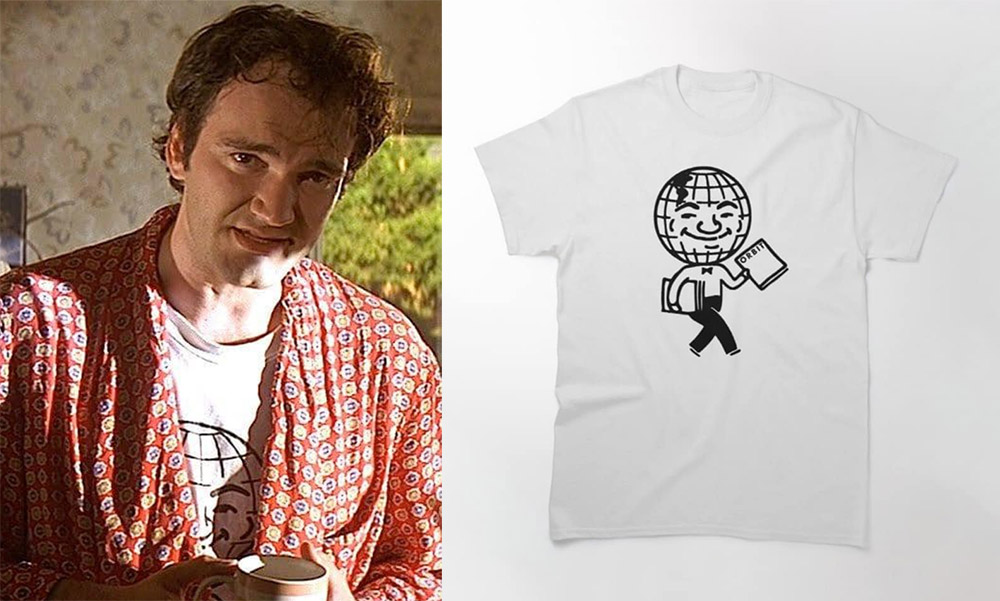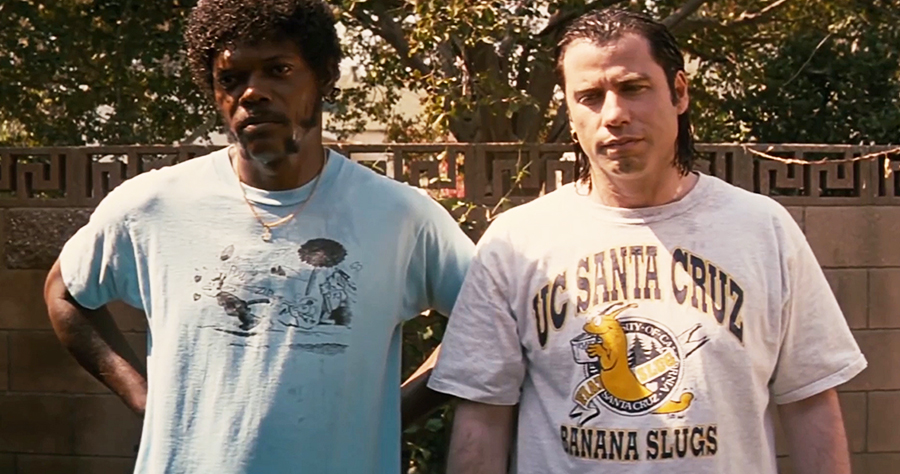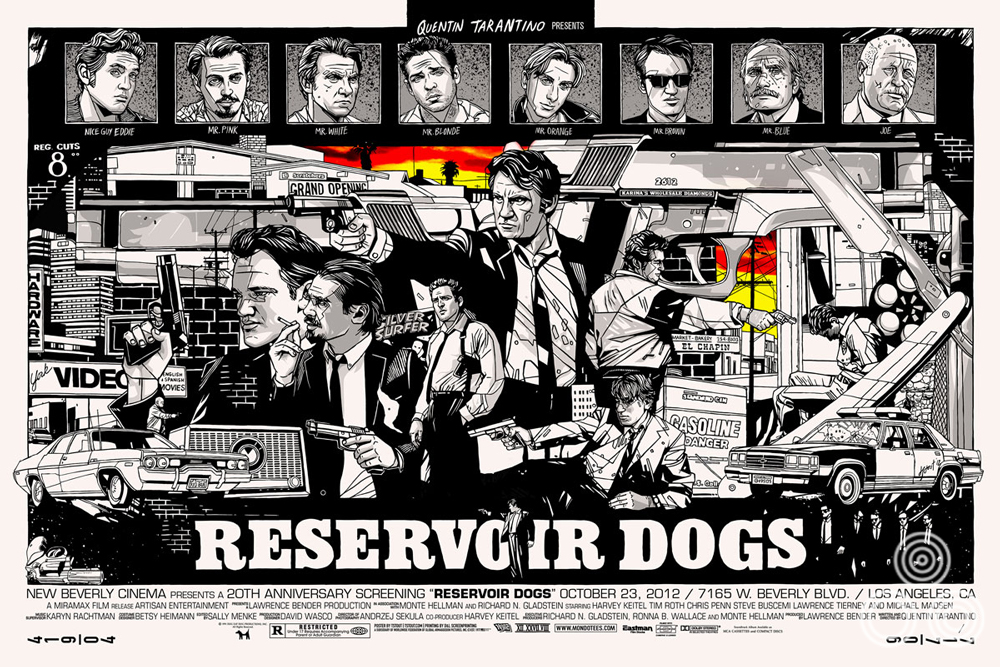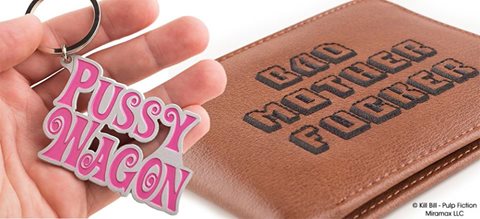Rare 1992 interview with Quentin Tarantino for Reservoir Dogs
October 12, 2021
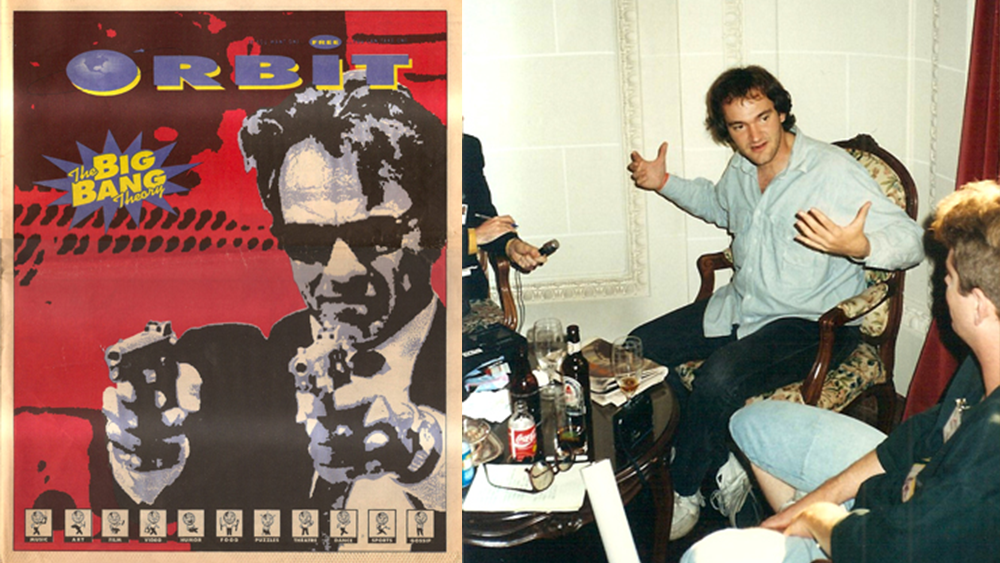
Read below Paul Zimmerman’s interview with Tarantino for the Detroit alternative weekly Orbit at Toronto’s Sutton Place hotel.
Paul Zimmerman: I was surprised so many people have missed the humor in the film.
Quentin Tarantino: When I was in Cannes, the French journalists were getting it, but the American journalists wouldn’t bring up the humor, just “the violence, the violence…” In the trailer that I love, the humor is emphasized as well as the tough stuff. And, you know, the humor is emphasized in the movie. You get the sense that it’s a funny movie at the same time. In New York Magazine, they had a list of films coming out in October, [and “Dogs” is] listed as a black comedy, which I like, because I think it’s a funny movie. The problem is, early on, from time to time, I’d show it to an audience, and they didn’t know they were supposed to laugh.
I watched it on video with another writer, and we had to stop it a bunch of times. Not to stroke you too much, but we were laughing so hard.
Oh, that’s great man, that’s cool. What I like is getting you to laugh. All right? Like laugh, laugh, laugh, and then — BOOM! [smashes fist into palm] Knock you down. And then you are shell-shocked for a little bit, and then to get you to laugh again after that. I mean, the fact that the biggest laughing scene in the movie is Mr. Pink (Steve Buscemi) saying, “I don’t wanna be Mr. Pink,” and that happens after the torture sequence. A little bit afterwards, but the fact that after that sequence I could get you to laugh again must be pretty cool. I really like that. [chuckles]
One of the things about the film, of course, is that it turns on a big surprise — who the undercover cop is. Have you had a problem with anybody ruining that in a review?
No, not at all. As a matter of fact, I’d actually appreciate it if you wouldn’t mention that it’s a cop who is the traitor.
Yeah, I was thinking that. I haven’t written anything yet, and I was like, how do I even describe [Tim] Roth? Basically as just the guy bleeding on the floor, I guess.
Yeah, you shouldn’t. You really shouldn’t. And actually, I’ve been really fortunate. The American press will be coming out, and we’ll get the big onslaught when the reviews come out, and hopefully everything will be cool. But so far, they all realize how important that is. And so even in the reviews they talk in code.
But in a way, even to say there’s a surprise ruins the surprise. Because then you’re waiting for a surprise.
You’re a hundred percent right. I think you can say that the traitor will be revealed. No, it would be better if you didn’t say that at all, because you don’t even know if these guys are freaking out and just paranoid. You know, it’s so fun seeing the movie this way without knowing anything. You don’t know which direction it’s going to go. Mr. Pink comes in and says, “There’s a rat, there’s a rat, there’s a rat,” and then Nice Guy Eddie (Chris Penn) comes in and says, “There is no rat!” And you kind of believe him too. It’s like you don’t know if there is actually someone amongst them.
That was the best I’ve ever seen Penn.
Oh, he’s fantastic. You know, he’s the only actor in the world I could think could really play [heist leader] Larry Tierney’s son.
Did he gain weight for that part?
No, he lost weight for that part, actually. [chuckles mischievously]
When you write, do you listen to music?
Yeah, I do! That’s a good question. What I’ll do is, it’s like breaks. That will be like my breaks. I’ll have a bunch of music that’s in the spirit of the movie, all right? You know, rock songs or whatever. And I’ll write, write, write, and then I need to get up and walk around or whatever, and just, like, listen to music, walk around, hear the song in my head. You play it for a while and just kind of burn off the energy that way, then sit down, get back to work again.
Did you have the song “Stuck in the Middle With You” [from the notorious torture scene] in mind when you wrote the script?
It’s actually in the script. Which I can tell you I’ll never do again, because the record companies read the script and they know that you want that song. I actually got it — actually extremely cheap — but it was like every other song wasn’t written in the script, so we actually got it for a lot cheaper. They know you want it — it’s written in the script. See, I wanted to make films, and the only thing I could get going was on the page. So I put it all in the script. The big shots. The chase is broken down shot for shot. It’s cut in the script. “POV through windshield. Mr. Pink off screen.” I was making the movie on the page, because it was the only way I could make movies. And then, when I would show it to someone I could say, “Look, this is what I’m going to do. I’m not going to do this. Just this.”
Which part were you originally going to play if you had done it in 16 mm?
I was going to play Mr. Pink. I wrote the part of Mr. Pink for myself.
[NOTE: Later, when I interviewed Buscemi, he told me the speech he makes as Mr. Pink in the opening scene about how he doesn’t believe in tipping a waitress is pretty much exactly how Tarantino feels about tipping.]
Your film has been compared to Kubrick’s “The Killing” (1956), but I saw a lot of John Huston’s seminal heist-gone-wrong drama “The Asphalt Jungle” (1950), too.
Yes, “Killing” is almost a paraphrase remake of “Jungle,” but I think it’s a lot better.
But Sterling Hayden, who plays the lead in both films, is great when he does his “you’re boning me” speech in “Asphalt Jungle.”
He’s great in both, but I love when Hayden [in “The Killing”] says to Marie Windsor, “I’ll slap that pretty face into hamburger meat.” [emits a high-pitched laugh]
Has Madonna seen the movie? [The film opens with a hilarious and profane debate among a bunch of tough guys about what “Like a Virgin” means.]
She’s heard about it and wants to see it, but they’re making her wait until the New York premiere. When she does, I know she’s going to admit that’s what “Like a Virgin” is about.
[NOTE: Madonna reportedly saw and enjoyed the film. Some time later, she gave Tarantino an autographed copy of Erotica, her latest CD, on which she wrote: “Quentin, it’s about love, not dick.”]
You have one intense scene that ends with a great audience release. Have you had any audiences actually cheer?
I’ve had some cheering. It’s cool.
The closest I can equate it to is the Russian roulette scene in “The Deer Hunter.”
You’ve just paid me a hell of a compliment. Because I think that’s one of the best action scenes ever.
Your cast mentioned your script stood out because they had read such lousy scripts just prior. If you win any awards, you should thank all the hacks out there.
The problem with scripts now is people who have no business at all are writing scripts. And they’re not writing what they have inside that they want out. They’re writing what they think a movie should be, their version of “Romancing the Stone.”
It’s like the old notion you should write something you would like to see. They don’t feel it; it’s just something they think someone wants to buy.
Exactly! And they read these Syd Field screenwriting books, and the only reason to buy it should be the pleasure of burning it. They’re their own worst oppressors. They don’t even need the studios to fuck over their scripts.
They’re shackling themselves to begin with.
Exactly. I didn’t write to sell, I wrote to direct it. But first you have to get past the readers, and they’re the ones that always blew my stuff off. And I didn’t know if the dramatic structure would work. It was a theory I had. That if you were to take a novelistic structure and put it into film, it would be very cinematic. Edit it like that. Tell a story like that. Chapter headings. And you know on the printed page the vulgarity is much stronger. People who read the script never mention the violence. Vulgarity stands out more on the page. They’re most upset over the racial remarks.
Fun-fact by Paul Zimmerman
After the issue came out, I talked with Miramax publicist Gina Gardenia, who said, "When Quentin got the Orbit issue you sent he was jumping around the Miramax offices like a little kid going, 'Look, I got a cover! I got a cover!'" I sent Tarantino a gift package that included the next Orbit issue with the full 'Reservoir Dogs' interviews and an Orbit T-shirt with "Orby", the magazine’s cartoon mascot, on the front.
The shirt was later featured as part of Tarantino’s wardrobe for his role in "Pulp Fiction".
To get the T-shirt, click on the picture below.